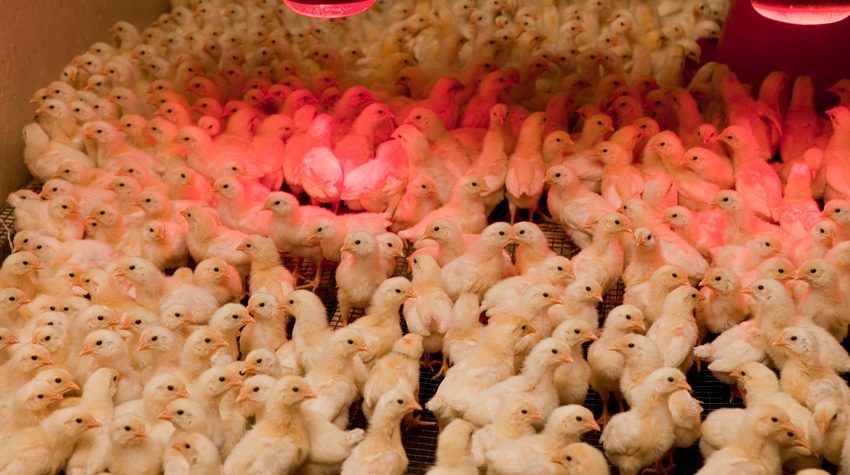Researchers assess using dry hydrogen peroxide in poultry hatcheries
Trial demonstrated that DHP performed as well as the industry standard formaldehyde fogging program.
November 15, 2023

Hatchery sanitation is an ongoing issue in commercial poultry operations and has become a focus since the removal of antibiotics in production. Poor sanitation has been found to reduce hatchability, increase 3- and 7-day mortality, and result in chronic infections that can reduce performance. More than 30 years ago, using a formaldehyde fogging system in hatcheries was a common practice to control microbes, but the practice was discontinued in many places due to the effects on both workers and chicks. However, the reduction in antibiotic use has resulted in formaldehyde fogging becoming a common practice once again.
Now, USPOULTRY and the USPOULTRY Foundation announced this week the completion of a funded research project by researchers at the University of Georgia that assessed dry hydrogen peroxide as a replacement for formaldehyde in commercial poultry hatcheries. The research was made possible in part by an endowing Foundation gift from Fieldale Farms. The research is part of the association’s comprehensive research program encompassing all phases of poultry and egg production and processing. In total, more than $36,000,000 has been invested in research by the Association and Foundation.
In the project, Dr. Brian Jordan and colleagues sought to compare the efficacy of using DHP in a commercial hatchery to formaldehyde. The central hypothesis of the research was that using DHP in the egg room of the hatchery, the hatchery common spaces and in the incubators and hatchers themselves, in a cumulative manner, would result in microbial control and hatchery and production performance equal to the use of formaldehyde fogging.
The results of the trial demonstrated that DHP, in the single-stage system utilized, performed as well as the industry standard formaldehyde fogging program. USPOULTRY said the results are significant for the poultry industry, as it shows that there is a viable alternative for formaldehyde use, especially since formaldehyde has already been banned in some states and is currently under risk evaluation with the Environmental Protection Agency, which could lead to a total ban.
You May Also Like



